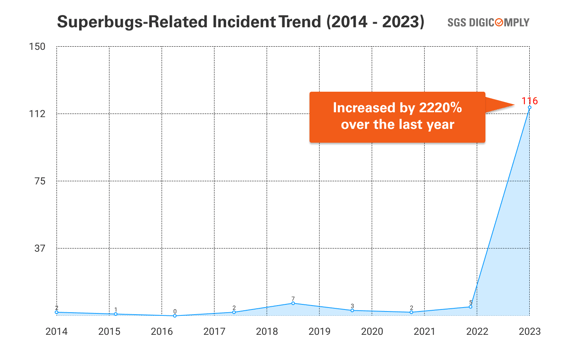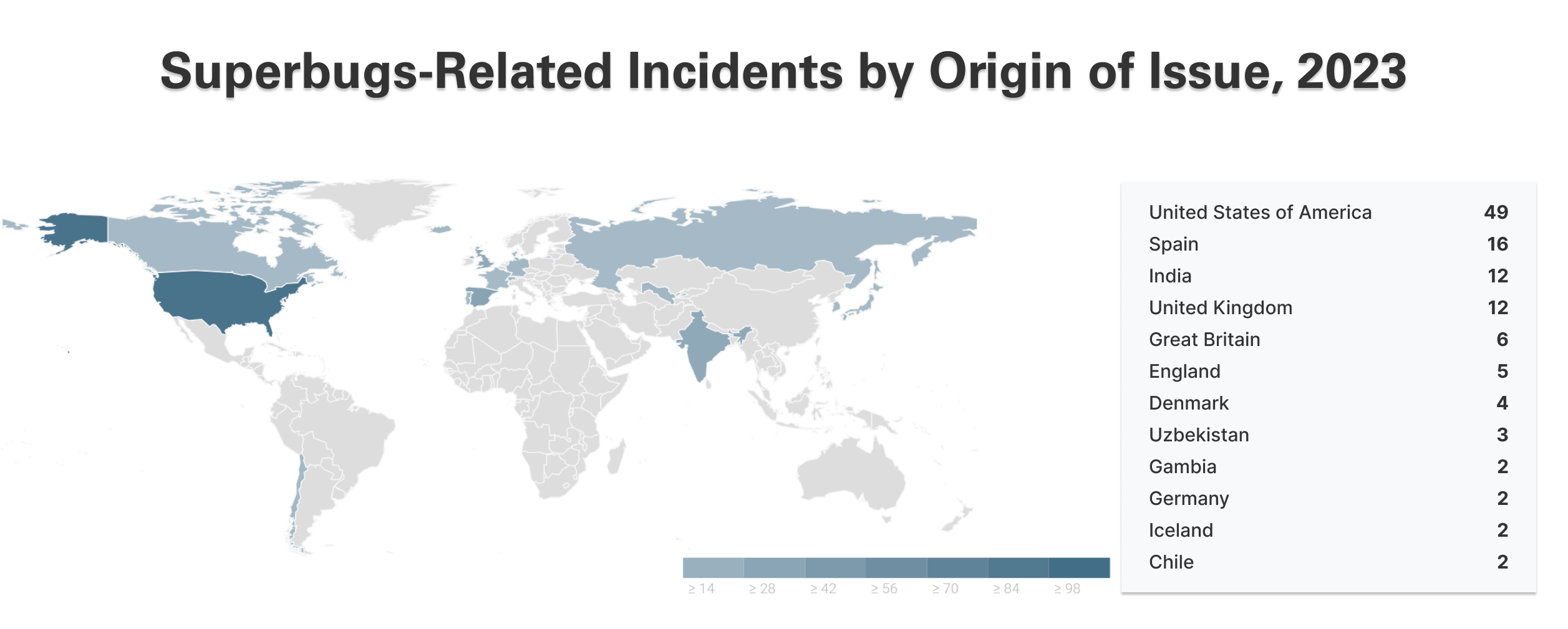Antibiotics have long been an integral part of livestock farming, playing a crucial role in treating and preventing diseases among animals. However, the rampant and often indiscriminate use of these antibiotics has led to an alarming rise in antibiotic-resistant bacteria, also known as "superbugs." This rise poses a significant threat not only to animal health but also to human well-being through the food supply chain.
The Overuse of Antibiotics in Livestock Farming
In many parts of the world, antibiotics are routinely administered to livestock for various purposes, including disease prevention, growth promotion, and overall herd health management. While this practice has been effective in preventing diseases and ensuring healthier livestock, it has inadvertently contributed to the development of antibiotic-resistant bacteria.
The continuous exposure of bacteria to antibiotics encourages the survival of resistant strains, leading to the evolution of superbugs. These resistant bacteria can persist in animals and spread through various routes, including the food chain, the environment, and direct contact with humans, posing a significant challenge to public health.
The Link Between Antibiotic Use in Livestock and Human Health
The transmission of antibiotic-resistant bacteria from livestock to humans occurs primarily through the consumption of contaminated food products or direct contact with infected animals or their environment. When antibiotic-resistant bacteria enter the human body, they pose a severe risk, as common antibiotics become ineffective in treating infections caused by these superbugs.
The consequences of antibiotic resistance are dire, leading to prolonged illnesses, increased healthcare costs, and, in severe cases, fatalities. Furthermore, the limited effectiveness of antibiotics in treating infections jeopardizes medical advancements and procedures that rely heavily on the successful treatment of bacterial infections, such as surgeries, chemotherapy, and organ transplants.
The Need for Responsible Antibiotic Use and Regulation
Addressing the issue of antibiotic resistance in livestock necessitates a collective effort involving farmers, veterinarians, policymakers, and the pharmaceutical industry. Implementing responsible antibiotic use practices in livestock farming, such as adhering to prescribed dosages and utilizing alternatives for disease prevention, is paramount in mitigating the spread of superbugs.
Regulatory measures and guidelines are crucial in controlling the use of antibiotics in animal husbandry. Governments and regulatory bodies must enforce strict regulations that limit the non-therapeutic use of antibiotics in animals, promote the development of alternative treatments, and encourage research into innovative disease management strategies.
Ensuring Food Safety and Long-Term Solutions
The significance of combating antibiotic resistance in livestock cannot be overstated. It not only affects the safety and well-being of consumers but also the sustainability of livestock production systems. By reducing the overuse and misuse of antibiotics, we pave the way for safer food production and contribute to preserving the effectiveness of antibiotics for future generations.
SGS Digicomply Insights: The Surge of Superbug Incidents Demanding Immediate Action
Through the comprehensive analysis provided by SGS Digicomply - the All-in-one Food Safety & Regulatory Compliance platform, a concerning pattern came to light. Over the past ten years, the trend related to Superbug incidents appeared relatively stable. However, a significant shift occurred in the recent period from 2022 to 2023, where these incidents skyrocketed from merely 5 to a startling 116 annually.

This astonishing surge translates to an exponential spike of 2220%. Such a dramatic increase raises urgent flags for immediate attention and intervention by both food safety experts and regulatory bodies.

A closer look at the data for 2023, as depicted in the "Superbugs-Related Incidents by Origin of Issue, 2023" chart, reveals that the United States of America, Spain, and India are the top three countries contributing significantly to the overall surge in Superbug incidents. Additionally, European region, including the United Kingdom, Denmark, and Germany, collectively represent a considerable portion of the incidents. Thus, companies operating in these regions require special attention to fortify their food safety protocols, ensuring they are tailored to address the specific challenges posed by the surge in Superbugs-related incidents.
This sudden rise necessitates in-depth investigations, proactive measures, and strategic implementations to address and mitigate the potential risks associated with Superbugs within the food industry. To continue the analysis and bolster proactive measures, leveraging the capabilities of SGS Digicomply is imperative. Explore SGS Digicomply platform now.
Conclusion
In conclusion, addressing antibiotic resistance in livestock is a multifaceted challenge that requires a comprehensive approach. Responsible antibiotic use, stringent regulations, innovative research, and global cooperation are key to mitigating the rise of superbugs and safeguarding both animal and human health through a secure and sustainable food supply chain.





.webp?width=1644&height=1254&name=Food%20Safety%20Dashboard%201%20(1).webp)
